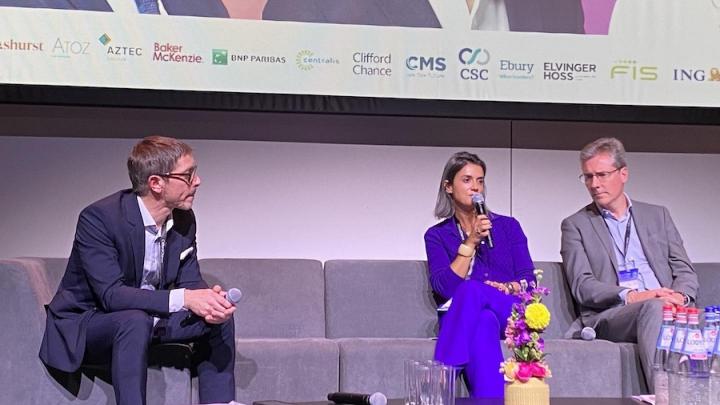
Despite tough times for private markets in recent years, family offices are seeing increased interest in private equity and venture capital, especially among the younger generation.
“Oh, yes. Big time,” said Raphael Eber when Investment Officer asked whether the next generation is interested in private equity. The partner and continental Europe CEO at Stonehage Fleming spoke at the Luxembourg Private Equity & Venture Capital Association’s annual Insights conference last week in Kirchberg. Stonehage Fleming, a multi-family office, was acquired by Corient in September, now the world’s largest wealth management firm for ultra- and high-net-worth clients.
“Private equity investments bring a sense of purpose for the next generation,” Eber explained. “The asset allocation to private equity moves from five to 20 percent, which means that we will be experiencing billions flowing into private equity markets in the coming years. Definitely, the appetite is there.”
“As the world’s largest multi-family office, the asset allocation to private equity moves from five to 20 percent, which means that we will be experiencing billions flowing into private equity markets in the coming years.”
Raphael Eber, Stonehage Fleming
Figures from Capgemini’s annual World Wealth Report back up Eber’s confident assessment. In Europe, the allocation of wealthy clients to alternative investments has increased from 13 percent of their portfolios in 2024 to 15 percent in 2025. Eighty-eight percent of relationship managers surveyed as part of the report said that young wealthy clients are more interested in alternatives than baby boomers. Among the next generation of wealthy clients in Luxembourg, private equity and private debt are the most preferred alternative asset classes.
A long-term view
Jean-Daniel Zandona, chief commercial officer at Arendt Investor Services, also sees significant interest from wealthy families in private assets, who he says tend to allocate up to 40 percent into private markets. “They over-allocate into the real economy,” he said, noting that many families built their wealth there, creating a natural affinity for such investments.
Despite risks like geopolitical conflict and political instability, family office allocations have been holding steady, according to Goldman Sachs’ 2025 Family Office Investment Insights report published in September. Average allocation to alternatives dropped a bit, from 44 percent in 2023 to 42 percent in 2025. When it comes to private equity specifically, average allocations declined from 26 percent in 2023 to 21 percent in 2025. Still, the report found that 39 percent of family offices plan to increase their allocations to private equity in the next 12 months, while 46 percent plan no change. Only 15 percent say they expect to decrease their allocation to private equity.
Family offices have a lot of patient capital and a long-term view, which fits well with private equity investments. They think over decades, remarked Stonehage Fleming’s Eber, not what’s going to happen in a few years. “Our motto is to keep our clients rich, not make them rich. It’s a big difference.”
Venture capital built on families
Family offices can deploy capital by investing in private equity funds, as well as through direct investments or co-investments. Building up a venture capital practice within their single-family office serving the Afflelou family, Yaday has funded more than 140 startups and 17 funds over 10 years. In June they announced the launch of a 100 million euro fund targeting tech startups. The Yaday Club also brings business angels and other family offices together to pool expertise and co-invest in projects.
Co-founder Pauline Bovyn says one of the top challenges is building a robust pipeline for deal flow: “It’s a very long process, and you have to build it organically. You need to be on the ground.”
Building a multi-disciplinary team and attracting the right talent is also key. “When you’re a family office, it’s not the same as being a big VC fund,” Bovyn said. It requires people who bring complementary skills and diverse perspectives, whether geographic or sectoral. Computational scientist Aurélie Jean, for example, is helping the firm “look under the hood” of companies to gauge their potential to scale.
It’s important to manage expectations around venture capital performance and liquidity, Bovyn adds. “VC is, by design, a risky asset,” she said. “You need to be really humble and transparent with your co-investors or limited partners, your ecosystem. It’s really case-by-case management, to know how to support the entrepreneurs we invest in, and the best way to exit. It demands active, hands-on management if you want to do it properly.”
One lesson for Yaday has been to plan greater capacity to follow up on different funding rounds for startups. “As a single-family office, dry powder is really important,” said Bovyn. “It’s not just to double down on the best ones. It’s also because you have micro-cycles. You need to be resilient, to be sure that you catch the right window at the right moment, and to be patient.”